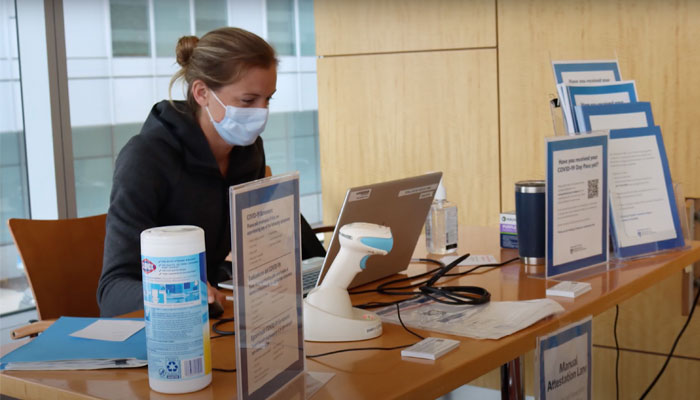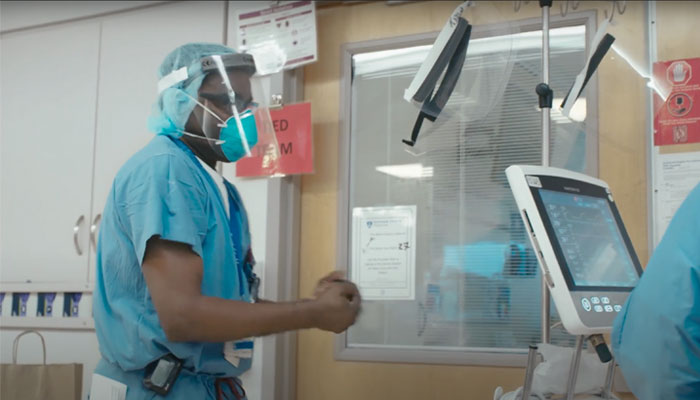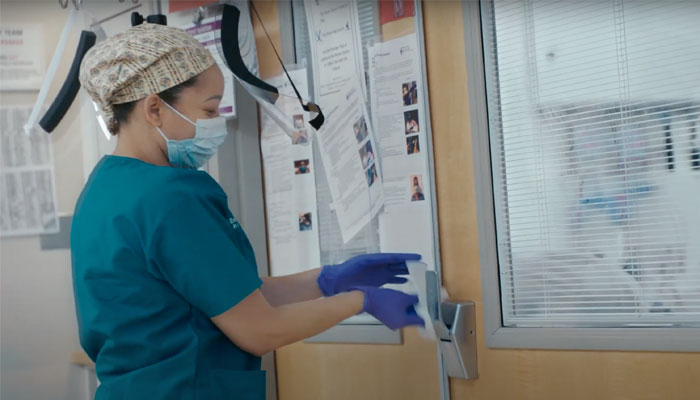Notice of privacy incident at Brigham and Women's Faulkner Hospital Learn More
Header Skipped.
Notice of privacy incident at Brigham and Women's Faulkner Hospital Learn More
Header Skipped.
Emergency Medicine
The health and safety of our patients, families and staff is our top priority. We understand that you may have concerns during the COVID-19 pandemic but know that the Department of Emergency Medicine is steadfast in our promise to provide the critical care you and your loved ones need during this difficult time. Learn more about Brigham and Women's Faulkner Hospital's Safe Care Commitment.
The emergency department (ED) has implemented a number of measures and special precautions to keep our ED safe and fully functioning during the COVID-19 pandemic, including:

All patients and staff must follow our safety guidelines while inside the ED’s waiting areas and clinical spaces. We require all employees, patients and visitors to wear a mask while in the hospital. We ask that everyone clean their hands using soap and water, or our new hand sanitizer stations, before and after physical contact with surfaces and others. We also follow physical distancing guidelines when providing care in the ED.

All patients who are admitted to the hospital from the ED are tested for COVID-19. Any patients with respiratory symptoms or who have tested positive for COVID are cared for in accordance with our infection control guidelines. All visitors to the ED are also screened for symptoms. A visitor with symptoms is restricted from entering the ED to protect staff and other patients.

We have made visits to the ED as efficient as possible to limit the total number of patients in the ED at any one time. We have accelerated the care process for patients who need immediate care by ordering blood work or simple imaging before they enter the ED.

The environmental services team keeps the ED clean and sanitary by performing rigorous, around-the-clock cleaning of waiting areas, clinical spaces and high-touch surfaces, including medical equipment. We also reduced the time it takes to start a room cleaning after use, ensuring that exam rooms are cleaned as soon as patients leave.
Brigham and Women's Faulkner Hospital's emergency department has put many safety measures into place to provide the safest possible environment for patient care.
If you have a medical emergency, it’s important to visit the nearest emergency department (ED) as soon as possible. A medical issue that requires immediate care may worsen without attention and proper treatment from an emergency care team. Seeking out care when every minute counts has never been more important.
"If you are experiencing chest pain or a worsening headache, please do not delay emergency care as these delays can lead to heart attack, stroke or even death," says Robin Powell, Nursing Director of the Emergency Department at Brigham and Women’s Faulkner Hospital. "If you are experiencing an emergency, please visit us for emergency care."
If you or someone you know is experiencing these signs or symptoms, it’s important to seek emergency care right away:
Other conditions that require emergency care include:
People with COVID-19 can experience a variety of symptoms. If you or someone you know experiences any of the following, seek immediate medical attention:
Learn more about seeking care for medical emergencies during COVID-19.
The ED will be launching new digital technologies to help further improve safety and access to emergency care. We are developing a digital tool that will display wait times to allow patients to know how long they would have to wait to get emergency care at any given time. We are also developing a tool that will allow patients with less severe illnesses or injuries (like a swollen ankle) to schedule their own visit to the ED during times when it’s typically less busy (morning).
Offering comprehensive medical, surgical and psychiatric care as well as complete emergency, ambulatory and diagnostic services to residents of southwest Boston and the surrounding suburbs.
Learn more about BWFH